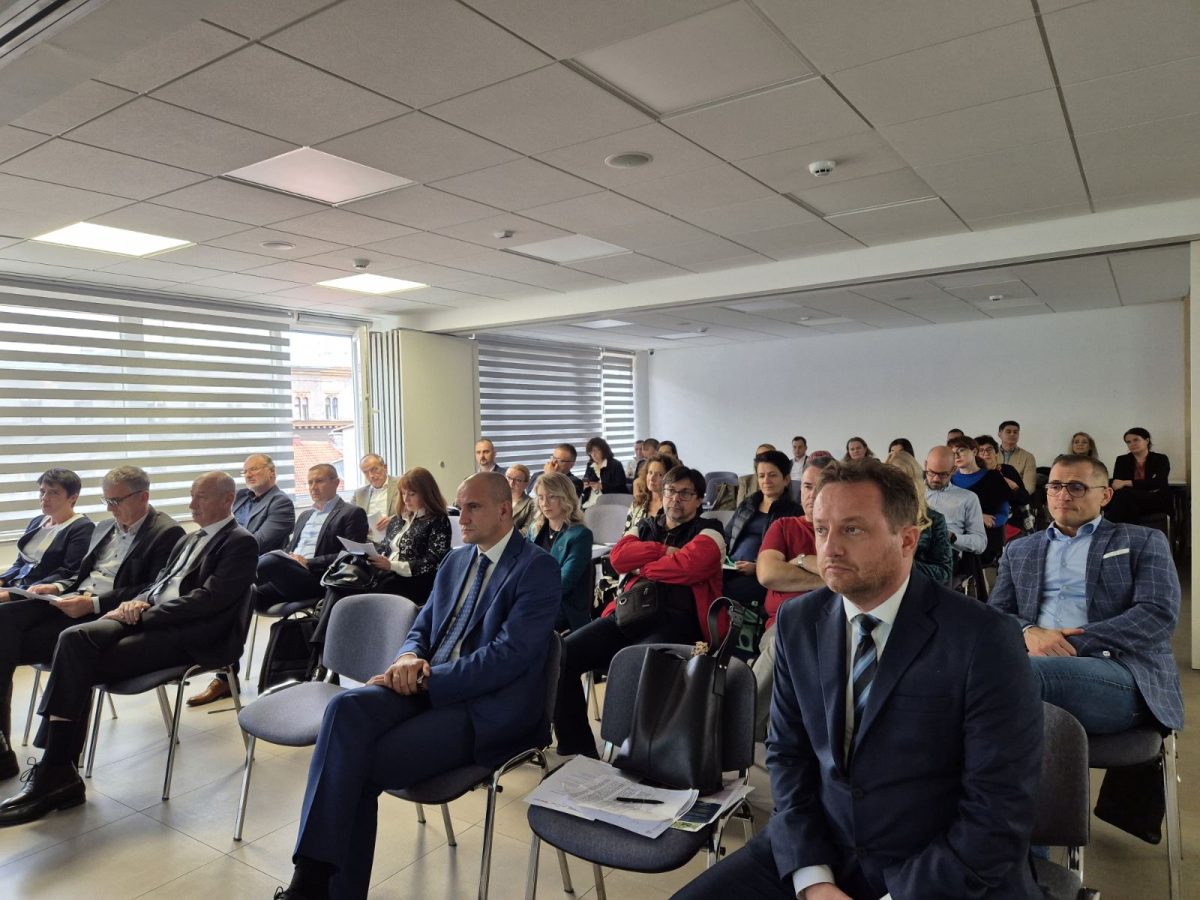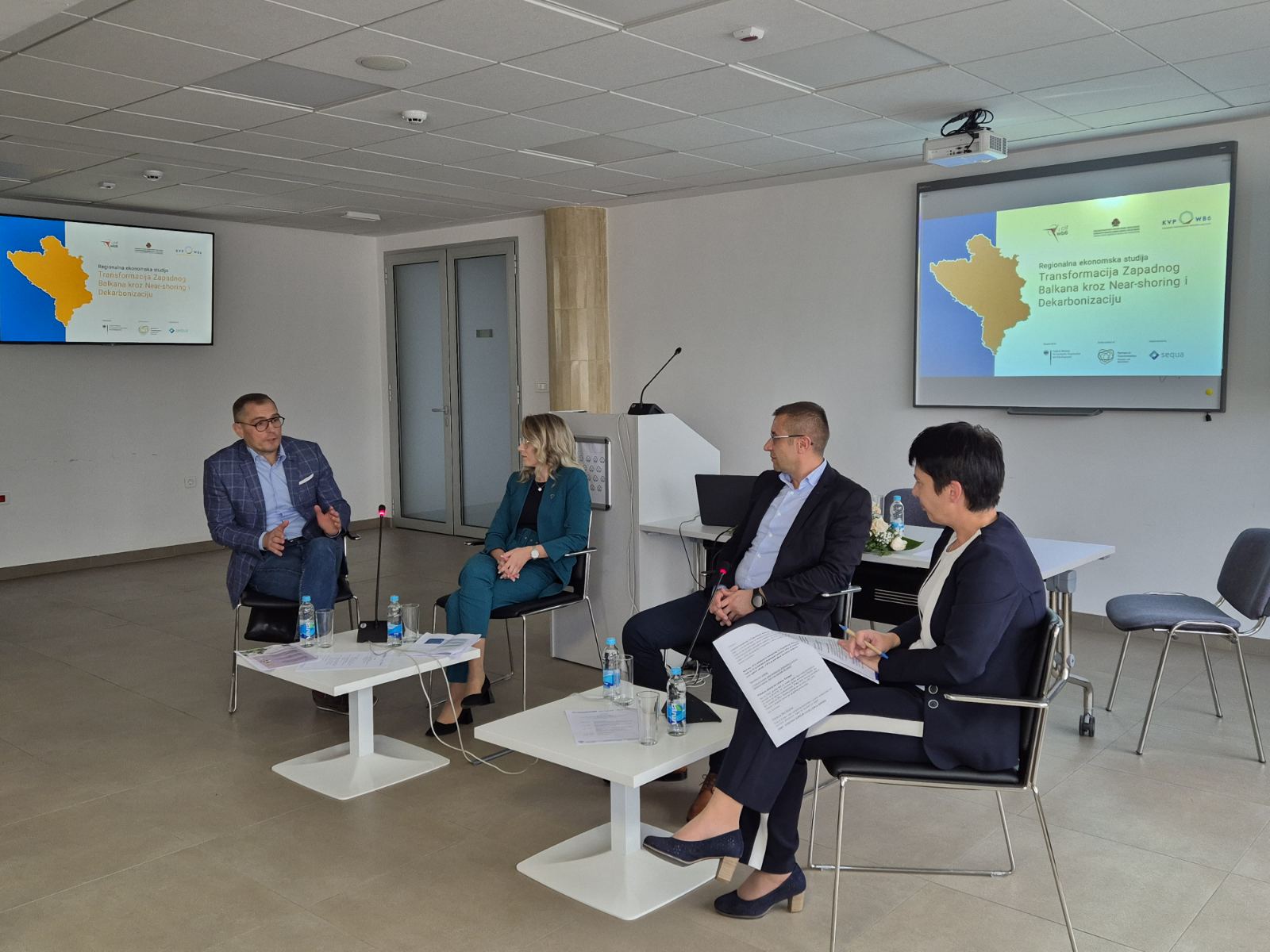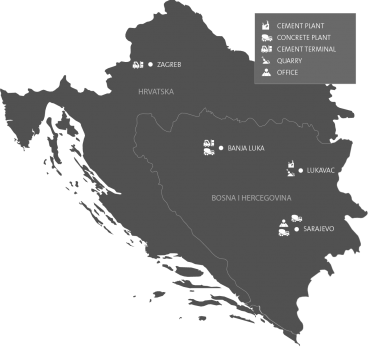Study “Transformation of the Western Balkans through Nearshoring and Decarbonization” presented at the Foreign Trade Chamber of BiH
Yesterday, the study titled “Transformation of the Western Balkans through Nearshoring and Decarbonization” was presented to the business community in Bosnia and Herzegovina, with representatives from companies, institutions, and organizations in attendance. As part of the event, a panel discussion “Effects of Nearshoring and Decarbonization from the Private Sector Perspective” was held, including our general director, Stjepan Kumrić.
The discussion focused on the challenges and opportunities posed by nearshoring and decarbonization. Kumrić emphasized that decarbonization is a primary goal and has been a major focus for Lukavac Cement over the past decade. He also suggested that introducing a domestic CO₂ emissions tax would be beneficial, as it could fund emissions reduction projects and help mitigate the impact of the upcoming Carbon Border Adjustment Mechanism (CBAM) tax, set to take effect as of January 1, 2026.
The private sector is well aware that the decarbonization process is financially and resource-intensive, with the main takeaway to take proactive steps and get down to work rather than waiting for others to lead.
It was also highlighted that companies in Bosnia and Herzegovina largely rely on their own human and financial resources but that it is essential for BIH institutions to accelerate the adoption of appropriate laws and regulations to ensure that companies can become part of a sustainable “green supply chain” and production network.
This study was prepared as part of the Chamber Partnership Project, in collaboration with the Western Balkans Chamber Investment Forum (WB CIF) and six national chambers of commerce from the Western Balkans, alongside the Vienna Institute for International Economic Studies (wiiw). More details are available via the provided link.






